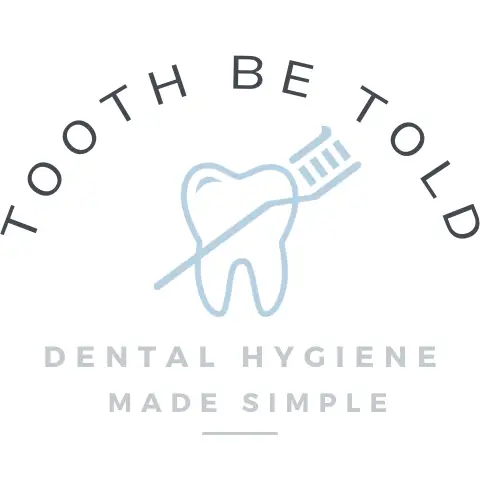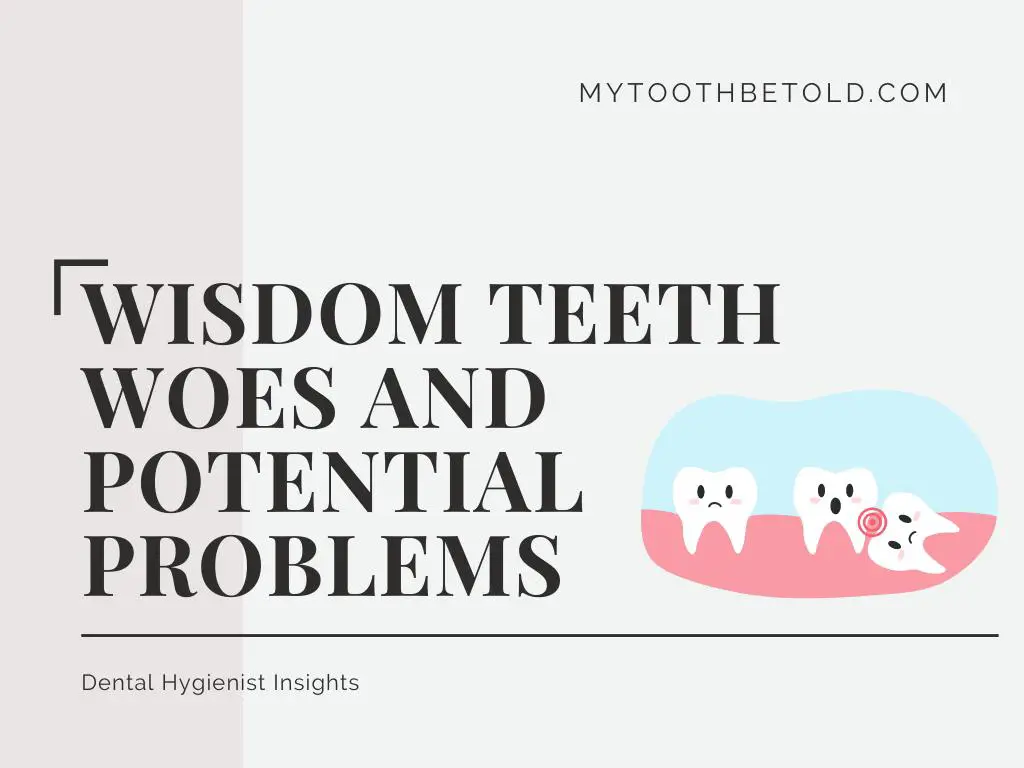
Our third molars, universally known as wisdom teeth, have a bad reputation for causing problems and issues. As a dental hygienist, I spend a lot of time in people’s mouths, observing wisdom teeth and helping people manage the issues associated with wisdom teeth. But what are the most common potential problems and cons of keeping wisdom teeth?
Wisdom teeth, often lacking adequate space for eruption, can lead to various complications: shifting teeth, gum disease, impaction, cyst formation, infection, nerve damage, and decay. Their posterior location in the mouth makes them challenging to clean, boosting the risk of decay and gum disease.
Problems associated with wisdom teeth can range from mild issues to significant infections that could be fatal.
In this post, I dive deeper into the details. Below are the most common wisdom teeth woes and potential problems I often discuss with my patients in my dental chair. Also, I tell a story about one of my patients who ended up in the hospital with an infected wisdom tooth.
Wisdom teeth are usually only removed if they cause problems, or are likely to in the future.
https://www.ncbi.nlm.nih.gov/books/NBK279590/
1. Shifting teeth
I thought I would start with the more controversial topic of shifting teeth due to wisdom teeth. Reading the research, there is insufficient evidence to say there is a definite cause-and-effect relationship between wisdom teeth causing other teeth to move and shift.
However, there is a clear divide where many professionals believe that erupting wisdom teeth can cause the other teeth to shift. Source .
.
In my professional opinion and with many mouths that I have seen over the years, I am one of those professionals who believe there is an impact of erupting wisdom teeth and shifting teeth. Still, I am not discounting the fact that there are other causes of shifting teeth. I do think that wisdom teeth can have an impact on shifting teeth, but it is not the only reason.
It will not cause more crowding, but if the wisdom teeth are removed, the last molars in your mouth can shift backwards, creating a larger space between your last tooth and the second last tooth.
This can affect your bite and how your top and bottom teeth fit together.
Like any missing teeth, the ones still present around it can shift because the missing tooth no longer supports it.
If you’ve worked so hard to improve your smile, it’s unfortunate when it regresses to how the teeth were before orthodontic treatment.
If you are curious about the process of getting wisdom teeth extracted, I wrote a post below with all the information and must-know details I give my patients.
Read Now: How Are Wisdom Teeth Removed? Full Guide: Hygienist Explains
I am a cautious person and heavily focus on prevention, so if there is a chance that my erupting wisdom teeth could cause some shifting, I will deal with it by getting my wisdom teeth out. But that is my personal choice.
But if teeth are shifting, it is essential to note that crowded and crooked teeth can make cleaning parts of your mouth more difficult and lead to gum disease or excessive wear!
2. Gum disease
Some wisdom teeth may be covered in gum tissue if the wisdom teeth cannot fully erupt through the gums. We dental people like to use fancy words and call it an operculum, and you can see a diagram of an operculum in the image below.
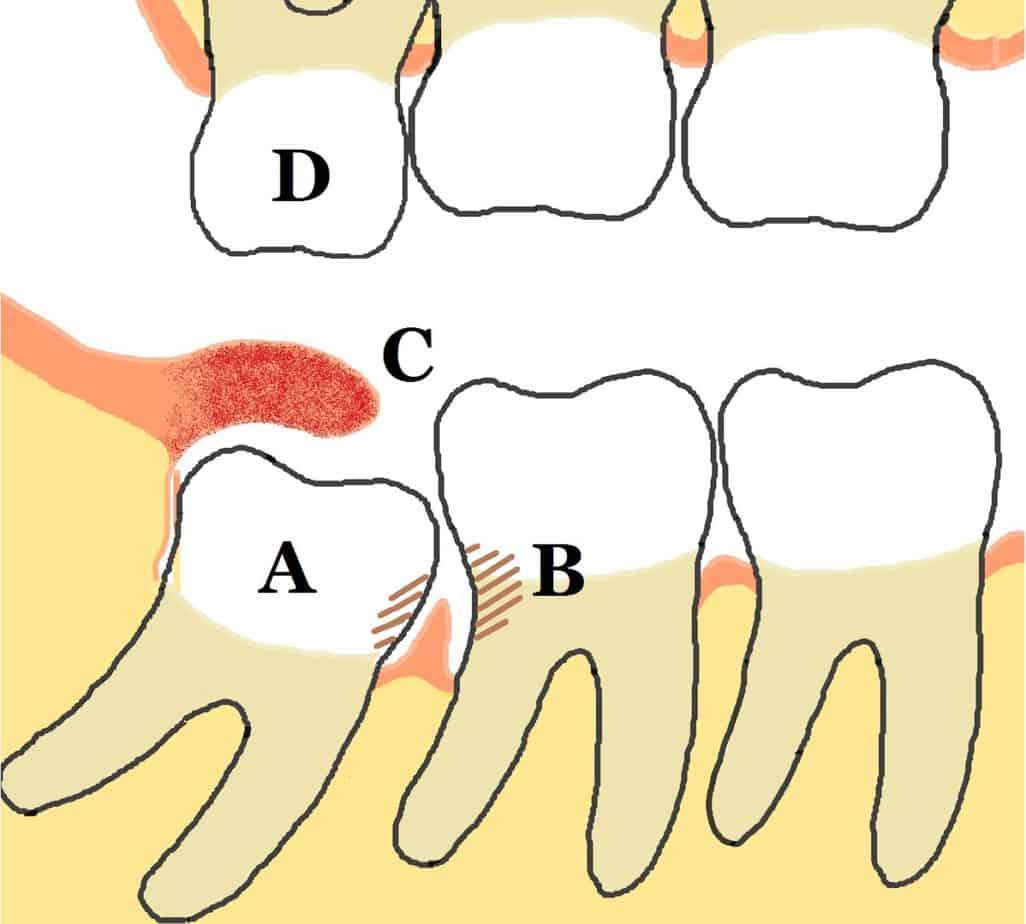
C- Operculum
Food and bacteria get stuck under this flap of tissue; honestly, it’s impossible to keep completely clean. It can lead to bad breath, infection in the gum tissue and, eventually, the bone tissue supporting the teeth.
Suppose this infection continues and is not taken care of by either gum surgery to remove the operculum or extraction of the wisdom teeth. In that case, it can lead to periodontal disease (also known as gum disease). This disease will break down your gum and bone tissue and cannot be cured or rebuilt.
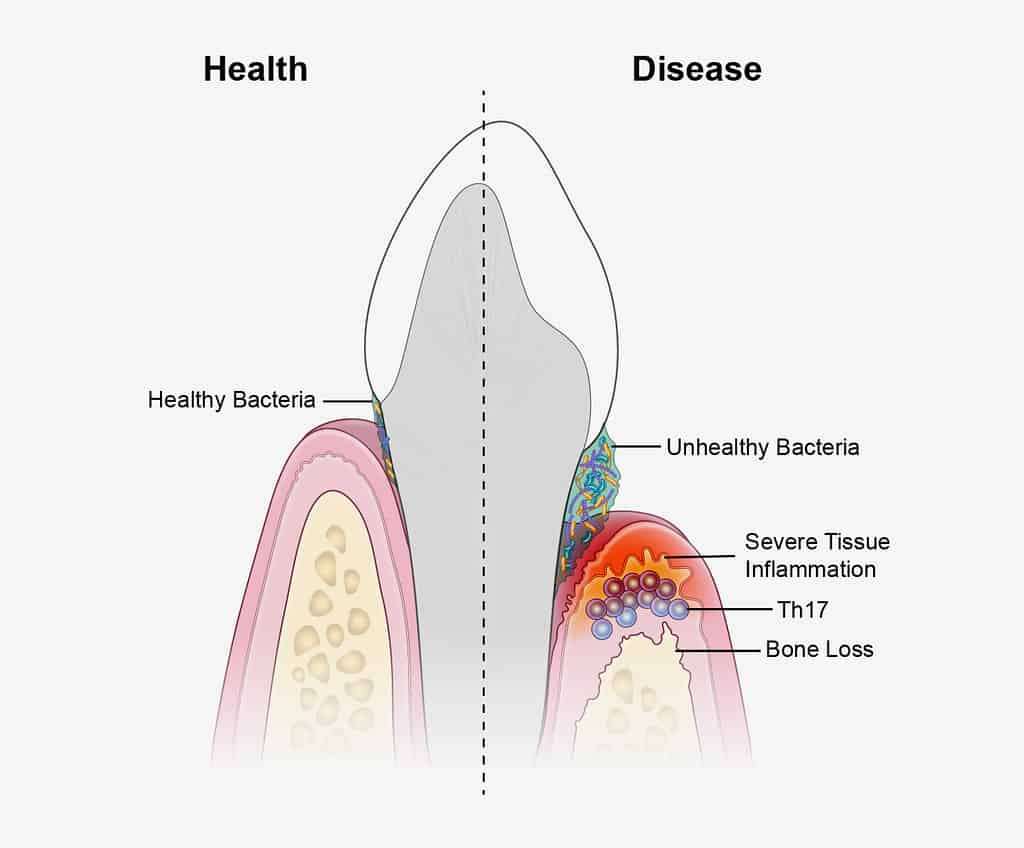
Once you have periodontal disease, you can never get rid of it. You can only control the amount of bacteria causing the disease, which will slow down the process of bone loss. More bacteria = more infection = more tissue loss.
Periodontal disease can and will eventually spread to the other teeth in your mouth and can affect the body. It has been proven to be linked with diabetes, rheumatoid arthritis, mental health, osteoporosis, pre-term labour, low birth weight, Alzheimer’s and some forms of cancers.
The National Center of Biotechnology Information published this study , and it goes into depth about the connection between periodontal disease and associated systemic diseases.
, and it goes into depth about the connection between periodontal disease and associated systemic diseases.
In many instances, the wisdom teeth can get “caught” underneath the gums and bone by the molars in front of them, which means they cannot erupt into the mouth. This happens often due to the direction and angle of the erupting wisdom teeth. This is called an impacted wisdom tooth.
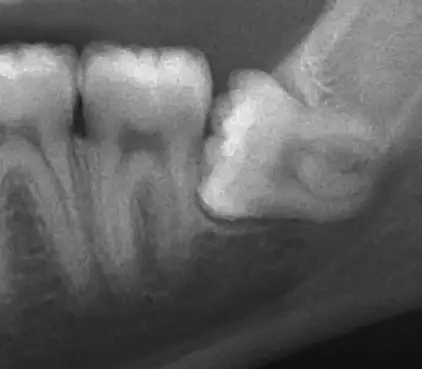
3. Impacted teeth
When wisdom teeth do not break through the gum and bone tissue due to being obstructed by other teeth in front of the wisdom teeth, they become impacted.
When wisdom teeth are impacted, they can remain stable, or issues can arise, such as cysts and infections, which I will go into more detail below.
4. Cyst formation
All teeth form in sacs within the jaw bone, a protective womb-like area. Sometimes, the sac can fill with fluid and become an issue. When the sac fills with fluid and puts pressure on the tissues around it, that tissue can start to die or become damaged.
The tissues at risk include the jaw bone, nerves and the teeth around it.
Cyst formation in the jaw can be seen on a panoramic radiograph (x-ray) taken at the dental office. Having frequent enough radiographs (but not too frequent) is essential to comprehensive dental care.
Read Now: How Often Should You Get Xrays at the Dentist? DH Explains
5. Infections
Infections can occur from impacted, partially and fully erupted wisdom teeth. It can happen slowly or come on suddenly. The symptoms of infection could include one, multiple or all of the following:
- swelling
- pain
- limited opening of your mouth
- redness
- pus
- bad smell
- bad taste in the mouth
- bleeding
If you have an infection, seeing a dental professional immediately is extremely important, as dental infections can become extremely dangerous quickly.
If you don’t have access to a dentist, the emergency room may be where you need to go.
Remember how close it is to the brain; in some cases, it could enter your bloodstream, infect your whole body, and potentially become fatal.
Story from my dental chair
I had a patient who had partially erupted wisdom teeth. One kept getting food trapped and inflamed a few times a year. Because of the position of this one wisdom tooth, the history of inflammation, food becoming trapped, and what I could see on the radiograph (x-ray), the dentist and I both recommended to this patient that he get his wisdom teeth out to prevent a more serious infection.
He delayed getting his wisdom teeth out because he was extremely busy at his job, and his wife became pregnant. However, it all turned sour when he was away, and the problematic wisdom tooth became infected.
Long story short, he let it be and did not seek medical care; he became septic and felt so ill he went to the hospital. The emergency room doctor admitted him right away and told him if he did not come in that day or was not as young and healthy as he was, there was a huge chance the infection would have been fatal.
He came in to see me not long after and told me the whole story and said he was sorry for not taking it as seriously as we had communicated, and putting it off because he “was busy”.
I am so happy he is okay and healthy, but it does reiterate that we dental professionals must communicate the risks of infection and discuss these experiences people have had.
6. Nerve damage
On the lower jaw, the wisdom teeth roots can be close to the nerve that runs through your lower jaw. If the nerve is damaged, it can leave permanent numbness around your lower jaw and cheeks and a partial section of your chin.
We are especially concerned if we can see that the roots may overlap the nerve. Because of this, it is essential to be assessed frequently to ensure you get them out at the ideal time.
There is a concern that if you eventually need to have your wisdom teeth out later in life due to decay or gum disease, the roots of the wisdom teeth will be too close to the nerve and fully developed, making extractions and healing more complex and lengthy and nerve damage more likely.
If the wisdom teeth roots are this close, the oral surgeon may want you to have a 3D cone beam radiograph (a type of x-ray) taken. These 3D radiograohs can be manipulated on the computer, and cross-sections of the jaw can be observed.
This allows the oral surgeon to know EXACTLY where the nerve is concerning your tooth. Sometimes, the oral surgeon may leave a portion of the root in your jaw untouched because of its proximity to the nerve.
Read Now: Can Adult Teeth Grow Back? Dental Hygienist Explains
7. Decay
Because of the difficulty of cleaning and the position in general, wisdom teeth are highly susceptible to decay, which can lead to infection.
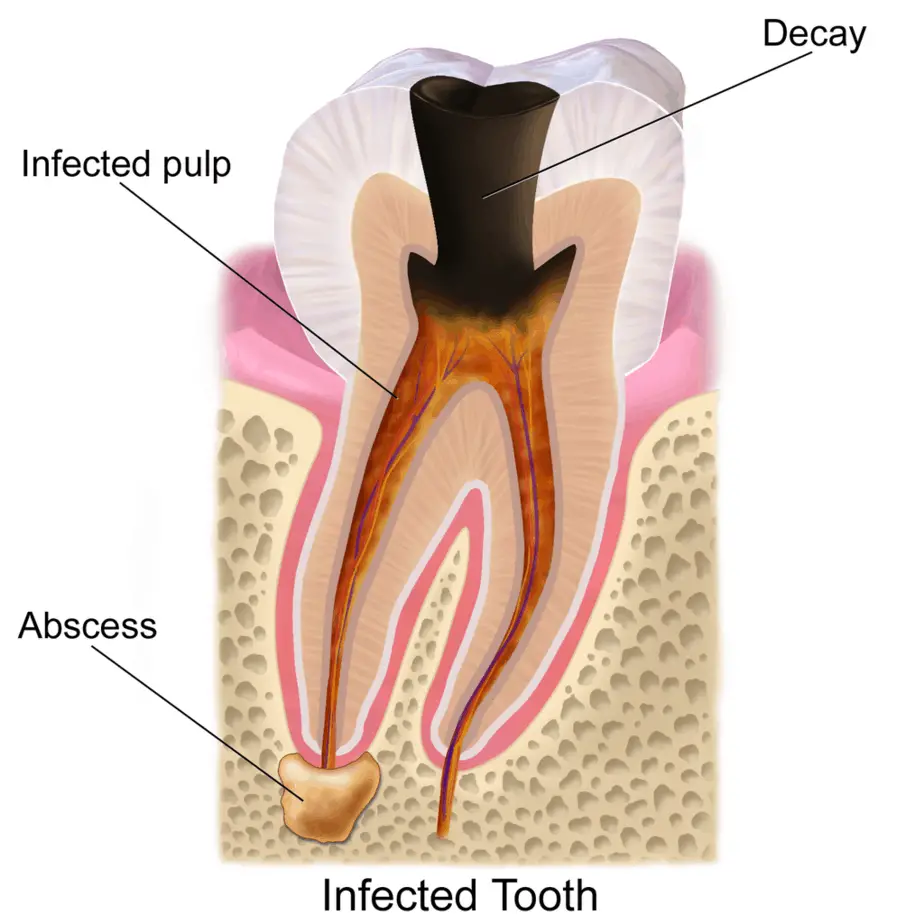
Also, for a dentist to correctly fill a tooth, it needs to be kept dry. The chance of moisture contaminating the tooth during a filling is very high in wisdom teeth. It will cause the filling material to not adhere well to the tooth, causing the filling to fail.
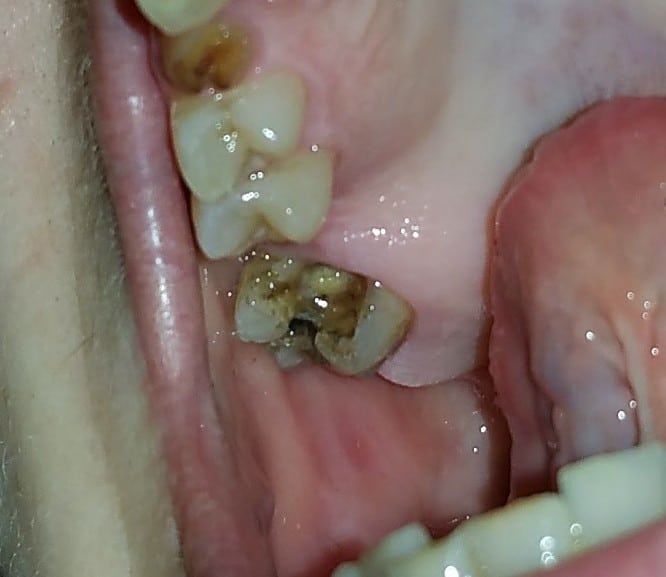
An extraction might be necessary depending on the tooth’s angle and the dentist’s ability to access it. And the longer you wait to have your wisdom teeth extracted, the roots and bone will be formed entirely, making for a potentially more difficult extraction with higher risks.
Wisdom teeth can cause many issues, but for some people, they will not cause problems in their lifetime, especially if the person has enough room in their jaw for the wisdom teeth to erupt and be functional teeth fully.
Please maintain regular dental hygiene visits because we hygienists will assess the health of the wisdom teeth to ensure there is no gum disease present or any other issues that could impact your oral and overall health.
Holly 🙂
